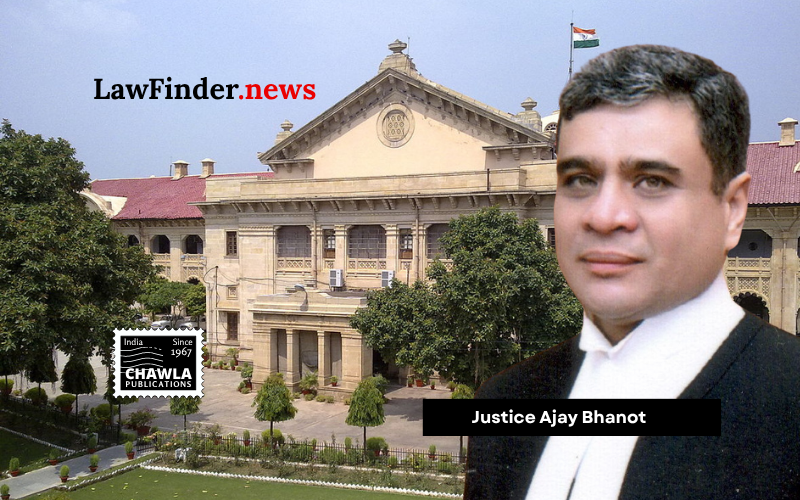Allahabad High Court Affirms Bail as a Tool to Ensure Fair Trial, Emphasizes Bail for Defense Preparation Post-Prosecution Evidence. Justice Ajay Bhanot’s landmark judgment underscores the constitutional right to bail for accused to prepare defense, balancing prosecution interests and fair trial guarantees under Article 21 of the Indian Constitution
In a comprehensive and landmark judgment dated October 14, 2025, the Allahabad High Court, presided over by Justice Ajay Bhanot, delivered crucial clarifications on the granting of bail to accused persons for the specific purpose of preparing and conducting their defense during trial. The judgment arose from multiple bail applications, including that of Vikash Kanjad and others, where the prosecution evidence had either concluded or was nearing completion, and the accused sought bail to effectively frame their defense.
The Court recognized the fundamental right of an accused to a fair trial as enshrined in Article 21 of the Constitution of India, emphasizing that this right encompasses the ability to prepare and present a defense adequately. The judgment underscored that bail is not merely a statutory provision but deeply rooted in constitutional law, where "bail is the rule and jail is the exception." It reaffirmed that denying bail should not amount to punitive detention but must align with the principles of justice.
Crucially, the Court held that bail can be granted at an appropriate stage of the trial-particularly after the conclusion of prosecution evidence and prior to the commencement of defense evidence-to allow the accused to gather evidence, engage legal counsel, and formulate an effective defense strategy. This approach addresses the inherent imbalance in criminal trials, where the State, with vast resources, conducts the prosecution, while the accused often faces socio-economic disadvantages and limited access to investigative tools.
While reiterating that bail for defense preparation is a valid ground, the Court cautioned against its mechanical or automatic grant. Judicial discretion must be exercised with due consideration of various factors such as the nature and gravity of the offense, the conduct of the accused during investigation and trial, the likelihood of tampering with evidence or influencing witnesses, and the overall impact on the fair administration of justice.
The judgment extensively reviewed precedents from the Supreme Court and other High Courts, including seminal cases like Gurbaksh Singh Sibbia v. State of Punjab, Gudikanti Narasimhulu v. Public Prosecutor, and Satender Kumar Antil v. CBI, highlighting the constitutional and procedural safeguards that underpin bail jurisprudence. It also criticized systemic flaws such as pro-prosecution bias in police investigations and inadequate compliance with procedural provisions like Section 313 of the Code of Criminal Procedure, which are essential for the defense.
In the specific case of Vikash Kanjad, the Court granted bail on furnishing personal bonds and sureties, subject to conditions preventing evidence tampering and ensuring attendance at trial. The Court directed trial courts to fix sureties mindful of the socio-economic realities of accused persons and warned that non-cooperation or dilatory tactics by the accused would lead to bail cancellation.
This judgment serves as a critical guidepost for courts across India, emphasizing that the right to prepare a defense is integral to a fair trial and that bail plays a pivotal role in balancing the scales of justice. It also calls for continuous legal education for advocates to ensure proper pleadings and materials in bail applications, thereby enhancing the quality of criminal jurisprudence.
Bottom Line:
Bail can be granted to an accused at the appropriate stage of trial, particularly after the conclusion of prosecution evidence, to enable him to prepare and conduct his defense, gather evidence, and frame an effective defense strategy, especially in cases where structural issues in the criminal justice system and socio-economic disadvantages hinder the accused's ability to defend himself adequately.
Statutory provision(s): Sections 313, 233, 439 of the Criminal Procedure Code, 1973; corresponding Sections 351, 256 of the Bharatiya Nagarik Suraksha Sanhita, 2023; Article 21 of the Constitution of India
Vikash Kanjad v. State of U.P., (Allahabad) : Law Finder Doc Id # 2796361




